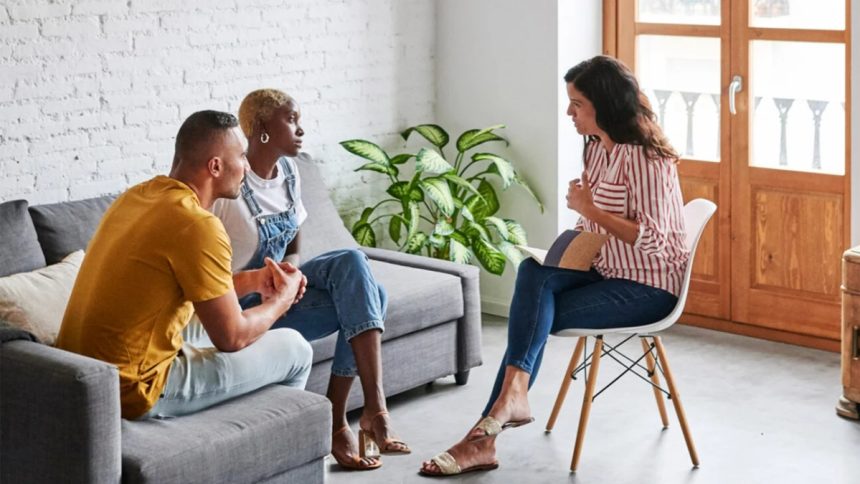Choosing the right therapist can feel like an overwhelming decision, especially when you’re already navigating mental health challenges. The therapist you choose will play a significant role in your journey toward healing and well-being, so it’s essential to make a thoughtful choice. But where do you start? And how do you know if the therapist is the right fit for you? Let’s discuss some important factors to keep in mind when picking a therapist, ensuring you have the tools you need to make an informed decision. Remember, therapy is personal, and it’s okay to switch therapists if the first one doesn’t feel like the right match.
Know What Kind of Therapy You’re Looking For
Before you can choose the right therapist, it’s helpful to have a basic understanding of the different types of therapy available. Therapy isn’t one-size-fits-all, and knowing what kind of support you’re seeking can help narrow down your options. If you’re dealing with any number of specific issues like anxiety or depression, you might benefit from Cognitive Behavioral Therapy (CBT), which focuses on changing negative thought patterns. Alternatively, if you’re processing trauma, Eye Movement Desensitization and Reprocessing (EMDR) might be the right approach for you.
In order to make an informed decision, it’s important to spend some time understanding psychotherapy. Psychotherapy is a discipline that covers a wide range of approaches that address emotional, psychological, and behavioral issues. Whether you’re considering talk therapy, art therapy, or something more specialized, knowing what different therapies offer can help you find the right fit for your needs. Some therapists offer a mix of therapies, while others specialize in one particular method. Having clarity about what type of therapy might work for you will make it easier to find someone aligned with your goals.
Finding a Therapist in Your Area
Once you know the type of therapy that interests you, the next step is finding someone in your area. Location matters, especially if you prefer in-person sessions over virtual ones. Even though telehealth options have become more widespread, many people still prefer the connection of sitting down face-to-face with a therapist. This is particularly true if you’re working through complex or deeply personal issues that feel more comfortable to discuss in person.
For example, if you’re in Texas and live near Austin, you might end up looking for a therapist in Round Rock or Mountain City. It’s important to start by searching local resources that list licensed professionals in your precise town. Finding a therapist close to home means you’re more likely to keep consistent appointments, which is key to making progress. It’s important to check if the therapist specializes in the issues you’re dealing with, whether it’s relationship struggles, grief, or anxiety. A local therapist who understands your specific concerns can provide a tailored experience that fits your needs. Remember, convenience and accessibility are important factors in maintaining a successful therapy routine.
Check Credentials and Experience
Not all therapists are the same, and their qualifications can vary widely. When you’re choosing a therapist, it’s essential to look into their credentials and experience. Therapists often have diverse educational backgrounds, including clinical psychology, social work, or even marriage and family therapy. Understanding what their qualifications mean and how they apply to your needs will help you feel confident in your choice.
In addition to educational credentials, it’s also worth asking about their experience with clients facing similar issues to yours. For instance, if you’re dealing with PTSD or severe depression, you’ll want someone who has extensive experience in these areas, rather than someone who primarily focuses on general mental health concerns. Don’t be afraid to ask questions about their training and areas of expertise during an initial consultation. It’s your right to ensure they’re equipped to help you navigate your unique mental health journey.
Trust Your Gut: The Importance of Connection
One of the most important aspects of therapy is the relationship you build with your therapist. No matter how experienced or qualified a therapist might be, if you don’t feel comfortable or connected, the therapy might not be as effective as it could be. It’s perfectly okay to trust your instincts when meeting with a therapist for the first time. Ask yourself: Do you feel heard? Do you feel respected? Can you open up about your thoughts and feelings without hesitation?
A good therapist will create a space where you feel safe and supported. If you find yourself feeling judged or misunderstood, it’s crucial to recognize that this might not be the best fit for you—and that’s okay. It’s important to remember that therapy is a partnership, and finding someone with whom you can establish trust is key. If, after a few sessions, you realize that the connection isn’t there, it’s completely acceptable to switch therapists. Many people go through multiple therapists before finding the right match, and it’s nothing to feel guilty about. Your mental health is the priority, and finding a therapist who truly resonates with you is worth the effort.
Lynn Martelli is an editor at Readability. She received her MFA in Creative Writing from Antioch University and has worked as an editor for over 10 years. Lynn has edited a wide variety of books, including fiction, non-fiction, memoirs, and more. In her free time, Lynn enjoys reading, writing, and spending time with her family and friends.















